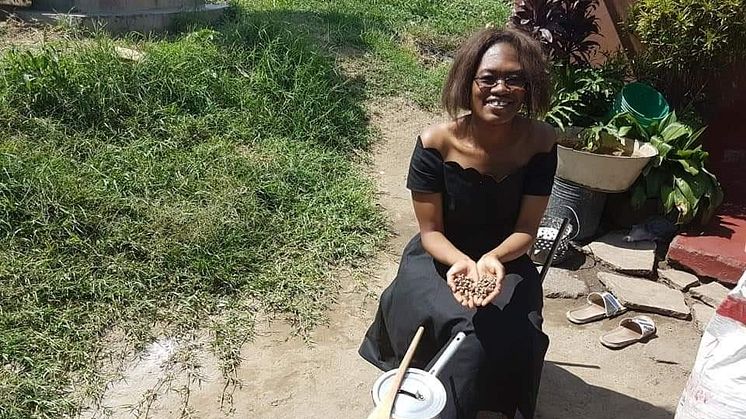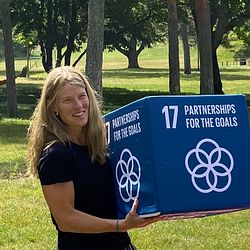
Blogginlägg -
Local implementation of new sustainable innovations - A field study report from Zambia
Mukuka Mulenga received an ICLD fieldwork grant in 2018 and did her fieldwork in Zambia. She recently graduated with a master’s in Sustainable Development from Uppsala University in Sweden. Her thesis aimed to explore knowledge about, and adoption of, improved pellet cook stoves in low-income households. Here she shares her reflections on her experience and the findings of her research.
"Studying for my Master of Science in Sustainable Development programme at Uppsala University, Sweden, I was privileged to be among the eight international students to be awarded fieldwork grants by the Swedish International Centre for Local Democracy (ICLD) to conduct research in Zambia. This was an exciting moment for me as it enabled me to travel to my home country, Zambia, to conduct research. This would not have been possible without the grant. Tack så mycket ICLD!
The need for clean and reliable energy
My experience during research was exhilarating in that the study did not only focus on the adopting individuals (project focus group) of the improved pellet cook stoves but also implementers and the relevant government departments. The study was informative, insightful and timely in this ‘adage’ of climate change. Here is a brief of the study that I undertook for more insight:
In order to attain sustainable development, there is need for clean and reliable energy. Wood fuel makes up over 70 percent of the national energy consumption in Zambia as only about 25 percent of the population has access to electricity. Availability of sustainable, clean and reliable energy remains a huge challenge as many houses use solid fuels and inefficient cook stoves which have adverse effects for human wellbeing, health and the environment. One initiative for sustainable energy provision in urban Zambia has been the introduction of improved cook stoves (ICS) based on sawdust pellets to replace traditional cooking on charcoal braziers. One of the main motivations for improved cook stove interventions has been to reduce household demand for wood fuel thus to reduce pressures on deforestation. However, adoption of improved cook stoves remains relatively low.
Awareness, adoptability and sustainability of improved pellet cook stoves
Using a user-centered approach, the study investigated the awareness, adoptability and sustainability of improved pellet cook stoves in view of government policies in Matero-George compound. It sought the factors influencing low-income households’ preference of traditional or modern cook stoves, knowledge of available energy options, the challenges households had relating to their current cooking solutions and the options available to them, and the appropriateness and effectiveness of government policies promoting the use of improved cooking technologies. The study employed a qualitative approach using semi structured interview questionnaires. The study involved thirty respondents comprising ten key informants from Departments of Energy (3) and Forestry (2) and the Lusaka City Council (5), and twenty households from Matero-George Compound.
The study revealed three main types of energy used by different households namely, wood fuel, electricity and the pellet cook stoves. The four major determinants of energy choice were in/convenience, economic, health, and risks factors. It also revealed that the expense of the pellet cook stove could be the reason for its slow adoption. Further, the study revealed that adoption was also affected by the awareness levels of the pellet cook stoves and new technologies which was low except for the people involved in the projects. It also showed that the government had no policy instruments regarding dissemination, sensitization and communication strategies on the new cook stoves.
Improving adoption of the improved cook stoves requires simultaneously addressing barriers related to the adopting individuals, the innovation (stove) and the Government."
Mukuka Mulenga
______
Photos courtesy Mukuka Mulenga
The views and opinions expressed in this article are those of the author and do not necessarily reflect the official policy or position of ICLD.
